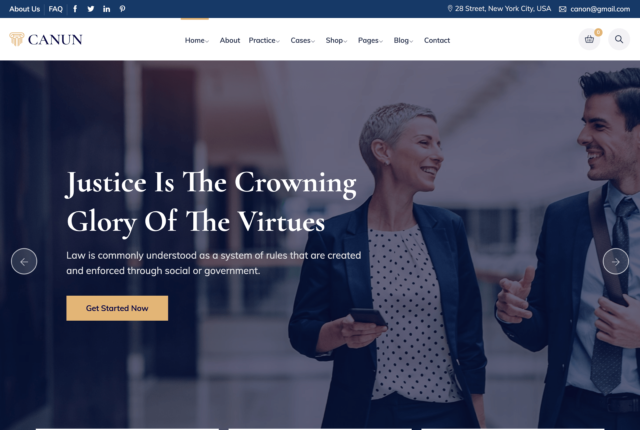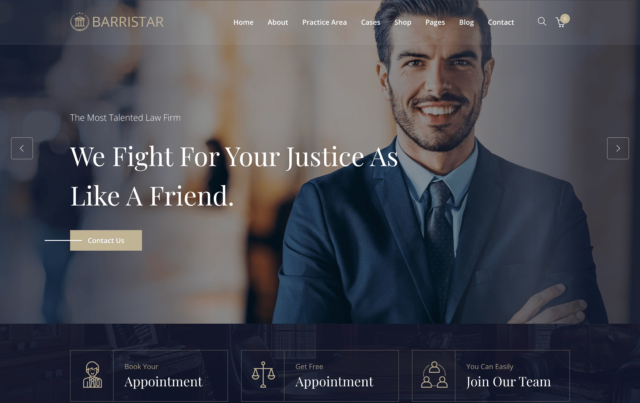Attorney Advertising Rules for the State of California
Read for more information on the rules for online advertising for California attorneys
California Attorney Advertising Rules: Comprehensive Overview
Attorneys practicing in California must adhere to specific advertising regulations outlined in the California Rules of Professional Conduct, particularly Rules 7.1 through 7.5. These rules ensure that legal advertising is truthful, non-misleading, and upholds the integrity of the legal profession. Below is a detailed overview of the key provisions governing attorney advertising in California.
Rule 7.1: Communications Concerning a Lawyer’s Services
- Prohibition of False or Misleading Communications:
- Lawyers must not make false or misleading communications about their services.
- A communication is false or misleading if it contains a material misrepresentation of fact or law, or omits information that makes the statement as a whole materially misleading.
- Avoiding Unverifiable Claims:
- Attorneys should not make claims that cannot be substantiated or verified.
- Comparisons with other lawyers’ services are prohibited unless they can be factually substantiated.
Rule 7.2: Advertising
- Permissible Advertising Methods:
- Lawyers may advertise their services through written, recorded, or electronic communication, including public media.
- All advertisements must comply with Rule 7.1.
- Payment for Recommendations:
- Lawyers shall not compensate, promise, or give anything of value to a person for recommending the lawyer’s services, except for:
- Paying the reasonable costs of advertisements or communications permitted by these rules.
- Paying the usual charges of a legal services plan or a qualified lawyer referral service.
- Paying for a law practice in accordance with Rule 1.17.
- Lawyers shall not compensate, promise, or give anything of value to a person for recommending the lawyer’s services, except for:
- Mandatory Disclosures:
- Any communication made pursuant to this rule shall include the name and office address of at least one lawyer or law firm responsible for its content.
- Reciprocal Referral Arrangements:
- Lawyers may enter into reciprocal referral arrangements with other lawyers or nonlawyer professionals, provided that:
- The arrangement is not exclusive.
- The client is informed of the existence and nature of the arrangement.
- Lawyers may enter into reciprocal referral arrangements with other lawyers or nonlawyer professionals, provided that:
Rule 7.3: Solicitation of Clients
- Direct Contact with Prospective Clients:
- Lawyers must not solicit professional employment through in-person, live telephone, or real-time electronic contact when a significant motive is the lawyer’s pecuniary gain, unless the contact is with:
- Another lawyer.
- A person with whom the lawyer has a family, close personal, or prior professional relationship.
- Lawyers must not solicit professional employment through in-person, live telephone, or real-time electronic contact when a significant motive is the lawyer’s pecuniary gain, unless the contact is with:
- Written, Recorded, or Electronic Solicitation:
- Such communications are permitted but must include the words “Advertising Material” at the beginning and end of the communication, unless the recipient is:
- A lawyer.
- A person with a prior professional relationship with the lawyer.
- Such communications are permitted but must include the words “Advertising Material” at the beginning and end of the communication, unless the recipient is:
- Prohibited Solicitations:
- Solicitation is prohibited if:
- The prospective client has expressed a desire not to be solicited.
- The solicitation involves coercion, duress, or harassment.
- Solicitation is prohibited if:
Rule 7.4: Communication of Fields of Practice and Specialization
- Stating Practice Areas:
- Lawyers may communicate the areas of law in which they practice.
- Claims of Specialization:
- Lawyers must not state or imply they are certified as a specialist in a particular field of law, unless:
- The lawyer is currently certified as a specialist by the Board of Legal Specialization, or any other entity accredited by the State Bar to designate specialists pursuant to standards adopted by the Board of Trustees.
- The name of the certifying organization is clearly identified in the communication.
- Lawyers must not state or imply they are certified as a specialist in a particular field of law, unless:
Rule 7.5: Firm Names and Trade Names
- Use of Firm Names:
- Firm names, trade names, and other professional designations must not be misleading.
- Trade Names:
- Use of trade names is permissible if they do not imply a connection with a government agency or charitable organization and are not otherwise misleading.
- Identification of Jurisdictional Limitations:
- If a firm operates in multiple jurisdictions, any jurisdictional limitations of lawyers not licensed to practice in a particular jurisdiction must be indicated.
Additional Considerations
- Internet and Social Media Advertising:
- The California Rules of Professional Conduct apply equally to digital advertising, including websites and social media platforms.
- Attorneys must ensure that online content adheres to the same standards of truthfulness and transparency outlined in Rules 7.1 through 7.5.
- Use of Testimonials and Endorsements:
- Testimonials and endorsements in advertisements must not create unjustified expectations or make unverifiable claims.
- If a client testimonial discusses specific case outcomes, the advertisement must clearly disclose that outcomes depend on the unique circumstances of each case and cannot be guaranteed.
- Contingency Fee Disclosures:
- Any advertisement mentioning contingency fees must clearly state that clients may still be responsible for court costs and expenses, even if the case is not successful.
Enforcement and Compliance
Disciplinary Actions for Non-Compliance
- Attorneys who violate the advertising rules may face investigations and disciplinary actions by the State Bar of California’s Office of Chief Trial Counsel.
- Potential consequences for violations include fines, suspension, disbarment, or other sanctions, depending on the severity and frequency of infractions.
Seeking Guidance
- Attorneys unsure about the compliance of their advertisements can consult the State Bar of California Ethics Hotline or review advisory opinions provided by the Bar.
- Pre-review of advertisements ensures that communications comply with all rules and minimizes the risk of disciplinary actions.
Record-Keeping Requirements
- Retention Period:
- Lawyers must retain copies of all advertisements for at least two years from the date of their last dissemination.
- Records must include the content of the advertisement and information about when and where it was published or broadcast.
- Digital Advertisements:
- For electronic or online advertisements, attorneys should maintain records in a durable and retrievable format. This includes copies of webpages, emails, or social media advertisements.
Additional Advertising Requirements in California
Use of Actors and Dramatizations
- Advertisements featuring actors or dramatizations must clearly disclose their use.
- Any portrayal of clients, lawyers, or legal scenarios by actors must be accompanied by a disclaimer, such as, “This is a dramatization. Not an actual client or case.”
Social Media and Online Reviews
- Transparency in Reviews:
- Attorneys must avoid manipulating or fabricating online reviews. Soliciting fake testimonials or endorsements is strictly prohibited.
- Truthfulness in Posts:
- Social media advertisements and posts must comply with Rule 7.1, ensuring they are truthful and non-deceptive.
Contingency Fee Advertising
- Any mention of contingency fees in advertisements must include a disclaimer explaining that the client may be responsible for other costs and fees, regardless of the outcome.
California’s attorney advertising rules, outlined in Rules 7.1 through 7.5 of the California Rules of Professional Conduct, are designed to ensure transparency, protect the public, and uphold the integrity of the legal profession. These rules apply to all forms of advertising, including traditional media, digital platforms, and direct solicitations.
By adhering to these guidelines, attorneys can effectively promote their services while maintaining compliance with ethical standards. For assistance or clarification, attorneys can consult the State Bar of California or utilize the Ethics Hotline for guidance. Proper compliance not only builds trust with potential clients but also safeguards against disciplinary actions.
Our marketing packages include the following
Search Engine Optimization
Paid Search Management
Legal Content Development
Website Design
Live Chat
Social Media Management









